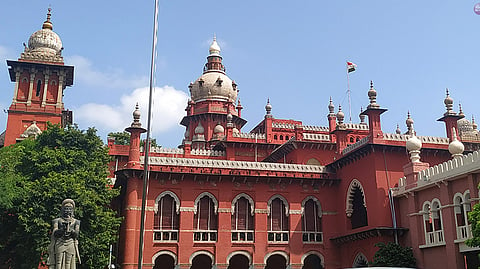
- Latest Legal News
- News
- Dealstreet
- Viewpoint
- Columns
- Interviews
- Law School
- Legal Jobs
- हिंदी
- ಕನ್ನಡ

In a significant ruling, the Madras High Court recently held that compassionate appointment scheme is violative of Articles 14 (right to equality) and 16 (equal opportunity in public service) of the Constitution of India and should be implemented only in deserving cases and strictly as per the terms and conditions [D Lokeshwari vs State of Tamil Nadu]
Single-judge Justice S M Subramaniam, therefore, denied relief to a woman, an adopted daughter of a government employee noting that the she was adopted just before her widow mother died in 2002 and applied for job on compassionate basis in 2014, after a delay of nearly 12 years.
"Compassionate appointment is a concession and cannot be claimed as a matter of right. This scheme being a concession, is to be implemented scrupulously in accordance with the terms and conditions stipulated. This scheme being violative of Articles 14 and 16 of the Constitution of India, is to be restricted, so as to ensure that the appointments are made on compassionate ground only for deserving cases," the Court said.
As per the petitioner, her mother worked as a junior assistant in a government-run school in Vellore district. Her mother too was appointed on compassionate grounds after her father died.
The petitioner was adopted by the mother a few months before she died on May 8, 2002.
However, the petitioner did not apply for compassionate appointment within the mandatory three years time period and only filed an application for the same in 2014. The said application was rejected on the ground of delay.
Considering the facts of the case, Justice Subramaniam observed that the very purpose of the scheme is to mitigate the circumstances arising on account of the sudden death of a government employee.
"Thus, the lapse of time is also a ground to draw a factual inference that the penurious circumstances aroused on account of the sudden death became vanished. Thus, the scheme of compassionate appointment cannot be extended beyond the reasonable period, more so, after a lapse of several years," the judge opined.
The Court further said that this scheme has been streamlined by the government, so as to provide appointment only on genuine grounds.
"Even if any one of the legal heirs are employed in government service or in private service and an earning member, then the family of the deceased employee is not eligible for the compassionate appointment," it added.
In view of the same, the bench dismissed the petition.
Advocate S Arunkumar appeared for the petitioner.
Government Advocate AM Ayyadurai represented the State.
[Read Order]